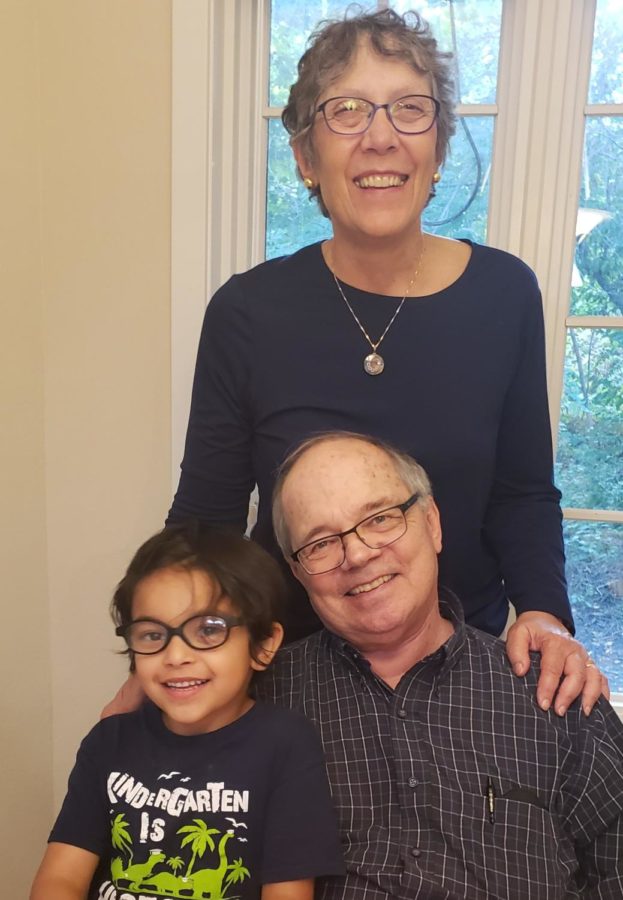Graduate College Associate Dean Carolyn Cutrona adapts to working remotely
Graduate College Associate Dean Carolyn Cutrona opted to work remotely for the fall 2020 semester due to her age and susceptibility to COVID-19. Cutrona enjoys spending time with her husband and grandchildren.
August 27, 2020
Carolyn Cutrona, associate dean of the Graduate College, opted to work remotely for the fall 2020 semester. At the age of 69, she is vulnerable to contracting COVID-19.
The Graduate College does not teach any classes or use any classrooms, so they have had a rather smooth transition into online work, Cutrona said. The faculty have had the option to work on an “alternative work assignment,” which is working from their home, and she decided to utilize that option for her health.
Collaboration between faculty members continues in Webex format. Cutrona meets with the Graduate College faculty and Dean Bill Graves weekly to ensure effective communication amongst those who keep the college running.
Cutrona’s main responsibility is to help graduate students solve problems when it comes to finding funding, communicating with faculty or giving her advice — all of which she is able to do online.
“It hasn’t been a big problem working remotely,” Cutrona said. “I don’t like it that much. I’m pretty bored staying home, but I’m 69 years old. I don’t have a medical vulnerability, but just my age puts me in the category of people who might get very sick if they were infected.”
Cutrona’s husband, Daniel Russel, is a human development and family sciences professor who has also opted to remain at home for the fall 2020 semester. The two share an office in their basement and alternate use of the spare bedroom when they need to take phone calls at the same time.
“I think that it’s easier to talk in-person about disagreements you might have or about conflict,” Cutrona said. “Happily, there are very few of those in my experience in the [graduate] college, but I think you can relate better to a person face-to-face than over Zoom.”
Although remote working has its challenges, Cutrona said the arthritis in her knees has improved significantly now that she doesn’t have to walk around campus or up stairs while toting a heavy bag.
“I miss my colleagues,” Cutrona said. “Those spontaneous walks down the hall where you ask how somebody’s doing and you chat about your grandchildren.”
Cutrona has two children: a son who lives in Brooklyn and a daughter that lives in Ames, each with a child of their own.
“What was really hard was not being able to see [my grandchildren] at the beginning of the pandemic because we all felt we had to stay safe by not having contact,” Cutrona said. “I get to see them more now, but we’re still careful.”
Cutrona said that apart from family, she enjoys visiting with her friends. Once a week, she has a Zoom call with her friends from high school, and once a month, she has a Zoom call with her friends from Iowa City, where she taught for 12 years. She also enjoys reading, going on walks, hiking at Ada Hayden Heritage Park and kayaking at her lake house in Wisconsin.
Cutrona advises students to follow her lead by staying safe while socializing.
“Work hard on maintaining your relationships safely,” Cutrona said. “Have Zoom parties, see each other remotely, use the telephone, use social media; keep those relationships alive because they’re really important. But don’t risk your health or anybody else’s by ignoring all these health recommendations.”

















